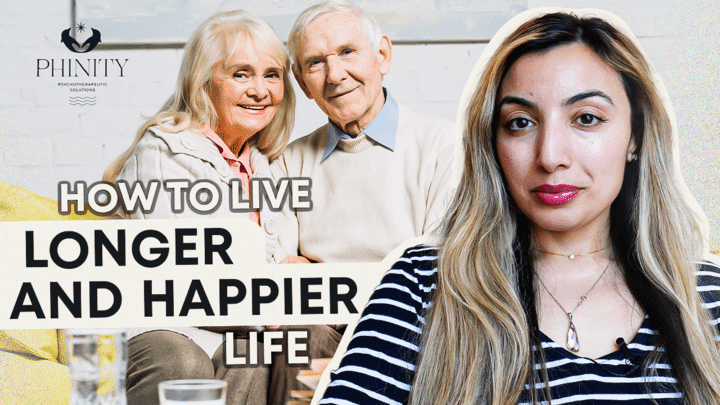EMDR Therapy Birmingham, UK & Online
Eye Movement Desensitisation and Reprocessing (EMDR) was created in the 1980s by Francine Shapiro. It aimed to treat trauma related distress by helping individuals process and heal from traumatic events for improved mental health and wellbeing.
EMDR integrates elements from several different approaches and utilises a set of standardised protocols during an eight-phase course of treatment. Individuals are provided a safe space in which they can experience images, emotions, self-thoughts, and body sensations related to their trauma. This is thought to help the brain adapt, and aid healing. EMDR proposes that trauma and challenging or negative experiences overwhelm the brain’s normal ability to heal and cope, leading to anxiety, flashbacks, harmful coping strategies, and/or depression.
It is thought that re-experiencing the trauma in a safe environment with a therapist, can stimulate the healing process due to the bilateral eye stimulation. EMDR is thought to work because it ‘unsticks’ traumatic memories that were not properly processed and stored, and therefore became stuck.
The external stimulation (that is, the bilateral movement, sound, or tapping) is thought to bypass the part of the brain that processes memories and help individuals reprocess the memory safely by reprocessing the presence of the physical, emotional, and psychological effects related to the traumatic event, leading to resolution. EMDR also helps individuals understand the previously disturbing events and their negative associations and thoughts about themselves that resulted from it.

Our EMDR therapists aim to help you safely reprocess traumatic memories until they no longer cause psychological disruption. Exposure to the memories over time is thought to reduce the negative impact. This is done over eight phases, these are: history taking, client preparation, assessment, desensitization, installation, body scan, closure, and re-evaluation of treatment effect.
Your therapist will attempt to help you replace negative views and beliefs about yourself that relate to traumatic memories, with positive ones. For example, rather than feel blame-worthy, an individual can learn to feel worthwhile instead. EMDR helps to recognise emotions and sensations that relate to the disruptive memory. Memories are reviewed at the same time as bilateral eye movement. The therapist will usually move two fingers bilaterally and after each set of movements (usually involving both eyes), individuals are asked how they feel.
They may also use tapping or sound as the stimulus. This continues until the memory is processed and no longer feeling disruptive. The new positive belief is “installed” after this, again using bilateral movement. Sessions typically last between 6-12 sessions and are 50 minutes. You may have one or two session per week. For some more sessions may be required, this depends on how isolated and complex the traumatic memory is.
- Evidence based approach, clinically validated by more than 30 gold standard studies
- Widely recognised as the treatment for trauma, sometimes in conjunction with other approaches
- Relatively brief and time-limited therapy
- Structured and phased approach
- Enables the reprocessing of trauma, turning negative associations into positive ones
- The disturbing nature of the memory loses its power as reprocessing occurs
- Improves associated symptoms and overall wellbeing
- Move forward from historical PTSD events
- Gain focus and hope for your future
- Gain control so you can start to live with maximum enjoyment
EMDR aims to heal all types of trauma. Over 30 studies have documented its effectiveness over the past 30 years for trauma associated with sexual abuse and rape, combat, childhood and neglect, life-threatening accidents, and symptoms relating to anxiety, panic, depression, substance abuse, and PTSD.
We offer EMDR therapy in Birmingham. Phinity Therapy also serve other cities and countries through our network of qualified therapists. Online therapy is also available, catering for those who cannot reach our clinic or have busy schedules.
Make a commitment to taking control and living the life you want and deserve. Start by booking your Free Initial Consultation Today and speak to one of our friendly principal therapists about your concerns and desired goals.
You can alternatively fill in our contact form located on our About Us page, or give us a call.
*Due to limited time slot availability caused by high demand, we now offer only one Free Initial Consultation for prospective clients, further conversations are charged at our normal rate.
We are proud to connect you with highly experienced practitioners who can help with almost any psychological issue.
Bereavement is a time and state of mourning and grief when we experience deep loss. It is a natural, inevitable, and often very painful part of life, which occurs in response to the deprivation of someone or something. When we process loss, we experience grief on multiple levels, including mentally, physically, socially, and emotionally. Emotional responses include anxiety, guilt, anger, sadness, and despair.
Borderline Personality Disorder (BPD), also known as Emotionally Unstable Personality Disorder (EUPD) is one of the most recognised personality disorders. Those affected tend to hold a distorted image of themselves, experience mood swings, and relationship problems, and are at increased risk of suicide
You might have experienced events in childhood that were disturbing and deeply distressing, causing you to feel helpless and unsafe. These events can be traumatic, impacting a person’s sense of self and their ability to experience a full range of emotions. This trauma may remain unprocessed, impacting adult life. But there are ways to work through childhood trauma.
Life is challenging, so it’s normal to feel low at times. If however, you’re feeling sad, apathetic, and hopeless for a prolonged period, you may be depressed, and this impacts functioning. And although depression is a natural response to difficulties, it can be treated.
Anxiety is a normal reaction to stress which is experienced by everyone at some time or another. However when anxiety becomes frequent and intense, this might be indicative of generalised anxiety disorder (GAD). If this sounds like you, read on to learn more.
Our specialised culture lives and breathes human psychology & care.
We do everything thoughtfully, with you in mind.
Which is why at Phinity you get Hands with Heart care.
Highest Quality Training, Accreditation & Experience
Individualised Approach Unique to You
Take the next step and Book Your Free Consultation Today!
Speak to our lead therapist who will carefully listen to your concerns, to understand what you want from therapy. If you decide to opt into therapy, we will match you to the most suitable practitioner so you can effectively achieve your goals.

PTSD is quite a complex condition. Read this article to learn how it might present, using the example of Thomas Shelby.
Case Studies Series(2)

This blog discusses the recent tragic loss of ASTRO’s Moon Bin & why KPOP has such high incidents of suicide.
Suicide(1)

Ever wondered how psychotherapy might support you or your loved one when trying to quit smoking? Read on to learn more…
Addictions(4)

What does psychology say about our True and False selves? And how in touch are you with your True self? Watch to learn.

This video explores the various eating disorder types. It’s important to note that eating disorders are serious mental illnesses that can have severe physical and psychological consequences, and that seeking professional help is essential for recovery.

This video explains some reasons why relationships are so hard. Also how we would work in counselling to help you work through problems.

Rehanna discusses how to live well and long, according to a client case study, and a Harvard study!

Watch and learn how COVID affects us emotionally and mentally, and how you can take control when this happens!
This website uses cookies to ensure you get the best experience on our website. By continuing to use this website, you agree to their use.

